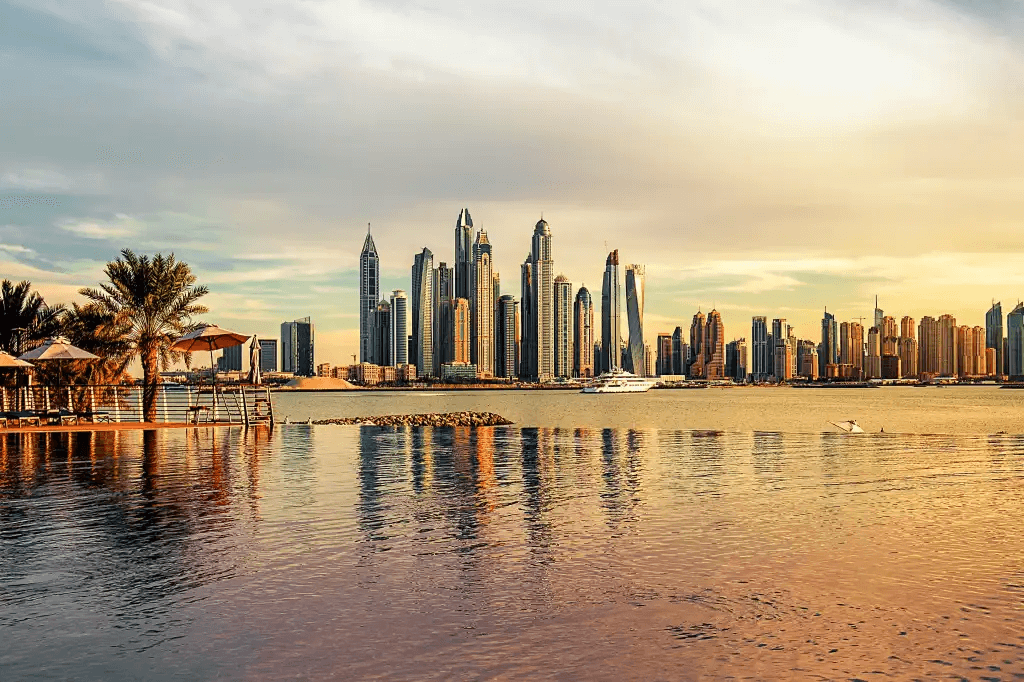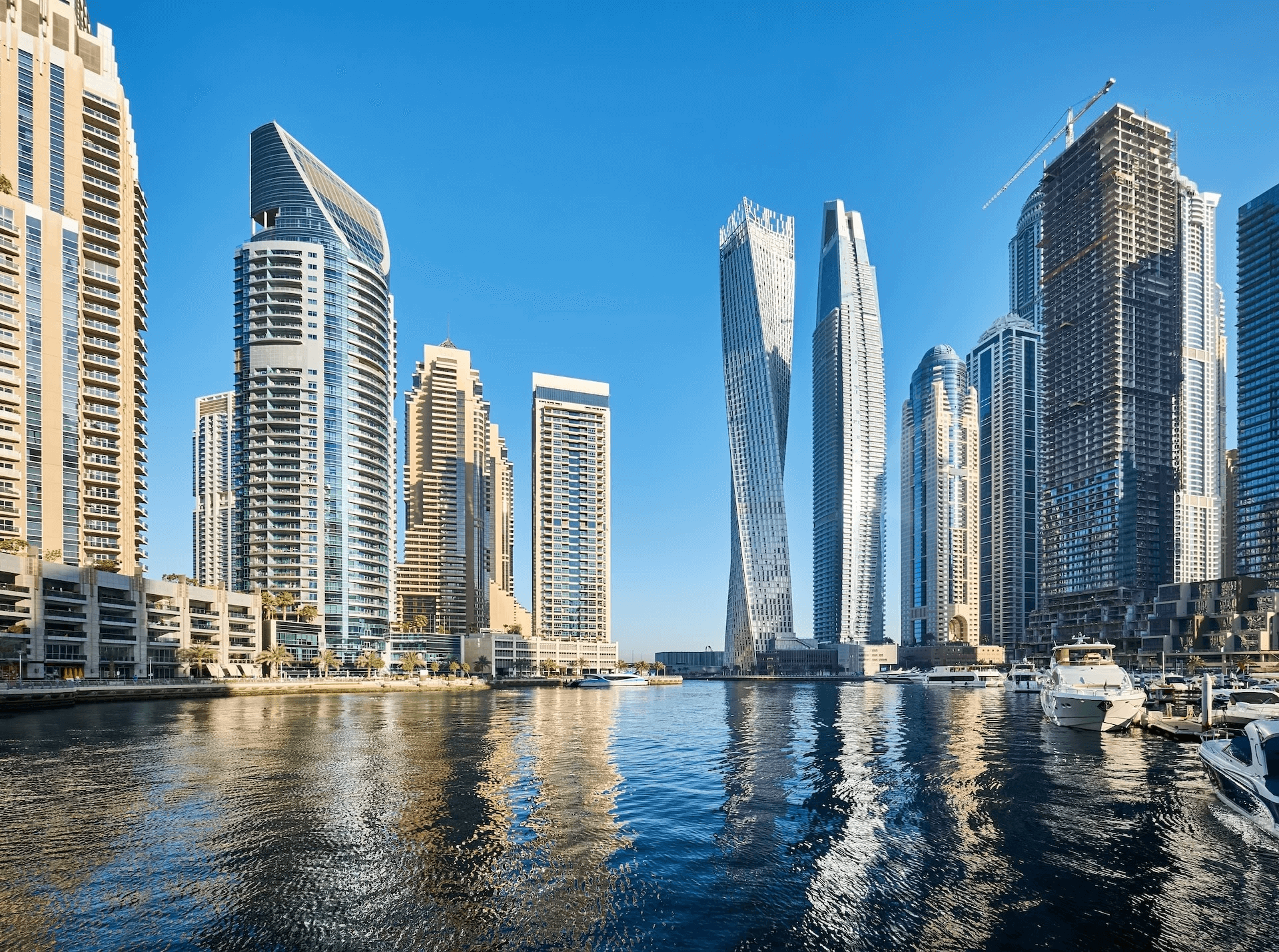Over the past few decades, the United Arab Emirates (UAE) has transformed into a global epicenter for business, commerce, and investment. Within the UAE, Dubai stands out as a beacon of economic growth and entrepreneurial opportunity, particularly for those seeking to tap into the lucrative markets of the Middle East and North Africa (MENA) region. With its strategic location, world-class infrastructure, and business-friendly environment, Dubai has become a preferred destination for entrepreneurs and corporations alike. This article delves into why business setup in Dubai Mainland has emerged as the center of business processes in the MENA region, outlining the benefits, procedures, and key considerations for starting a business in this dynamic economic zone.
Dubai Mainland: The Economic Heart of the UAE
Dubai Mainland is an economic zone governed by the Ministry of Economic Development (DED) in Dubai. Unlike free zones, which are geographically confined and have specific regulations, companies registered in Dubai Mainland have the flexibility to operate anywhere in the UAE and engage in a wide range of business activities. This flexibility makes Dubai Mainland a highly attractive option for businesses aiming for extensive market reach, both within the UAE and globally.

Key Benefits of Establishing a Business in Dubai Mainland
1. Unrestricted Business Operations
Companies registered in Dubai Mainland can operate without any geographical restrictions within the UAE. This allows businesses to open branches, offices, or outlets in any part of the country, providing a significant advantage in terms of market penetration and customer access.
2. Global Business Reach
Businesses in Dubai Mainland are not limited to domestic operations; they can engage in international trade and export their products and services to global markets without any constraints. This global reach is a key factor that attracts multinational corporations to establish their presence in Dubai.
3. UAE Tax Residency
By registering a business in Dubai Mainland, the company automatically gains UAE tax residency status. This offers a host of financial benefits, including favorable tax treaties with other countries, which can result in reduced withholding taxes on dividends, interest, and royalties.
4. Participation in Government Tenders:
Companies registered in Dubai Mainland are eligible to participate in lucrative government tenders and projects. Given the UAE government’s substantial investment in infrastructure, technology, and public services, this presents a significant business opportunity.
5. Resident Visa for Owners and Employees:
Business owners in Dubai Mainland can obtain a UAE resident visa, which allows them to live and work in the country. Additionally, they can sponsor visas for their employees, providing stability and security for their workforce.
6. Access to Local Financing:
Businesses in Dubai Mainland can avail themselves of financing options from local banks, which often offer competitive lending rates. This access to affordable capital is crucial for business expansion and operational sustainability.
7. Efficient Company Registration Process:
The process of registering a business in Dubai Mainland is streamlined and efficient, with company registration typically completed within two hours. This rapid setup time is a major advantage for entrepreneurs looking to start operations quickly.

Features and Considerations for Starting a Business in Dubai Mainland
While the benefits of establishing a business in Dubai Mainland are numerous, there are certain features and considerations that potential entrepreneurs should be aware of:
1. Foreign Ownership
Dubai Mainland allows 100% foreign ownership in over 120 types of business activities. However, for certain activities, the law requires that a local partner holds 51% of the company’s shares. To navigate this requirement, foreign investors can collaborate with a local service agent who acts as a representative before government authorities without having any ownership stake in the company.
2. Agent Fees
Engaging a local service agent incurs additional costs. The agent represents the company in dealings with government agencies, ensuring compliance with local regulations. These fees should be factored into the overall cost of doing business in Dubai Mainland.
3. Tax Obligations
Unlike free zones, where companies can benefit from zero tax rates under certain conditions, businesses in Dubai Mainland are subject to a 9% corporate income tax and a 5% value-added tax (VAT). These tax obligations are crucial considerations in financial planning and profitability projections.
4. Bank Account Opening
Opening a corporate bank account in the UAE is a mandatory step for businesses. The process usually takes 2-4 weeks and requires documentation proving the company’s legal existence, ownership structure, and the identity of its directors and shareholders.
Profitable Business Sectors in Dubai Mainland
Dubai’s economic landscape offers diverse opportunities for business ventures. Some of the most profitable sectors for businesses in Dubai Mainland include:
1. E-commerce
With a high-income population and a growing preference for online shopping, Dubai presents a fertile ground for e-commerce businesses. Companies can capitalize on the demand for a wide range of goods, from luxury items to everyday essentials.
2. Tourism and Hospitality
Dubai is a global tourist hotspot, attracting millions of visitors annually. The tourism sector offers numerous business opportunities, including hotel ownership, concierge services, and vehicle rentals. Non-residents can own and operate these businesses, further enhancing the sector’s appeal.
3. Real Estate
Dubai’s real estate market is one of the most dynamic in the world, driven by foreign direct investment and favorable tax policies. Investors can engage in buying, selling, or leasing properties, with the potential for substantial returns.
4. Fintech
As one of the leading financial centers globally, Dubai is at the forefront of financial technology (fintech) innovation. Businesses that offer digital payment solutions, blockchain services, and other fintech innovations find a welcoming environment in Dubai Mainland.
5. Manufacturing
The industrial sector in Dubai is robust, with several free zones providing additional incentives for manufacturing businesses. Companies in this sector can benefit from Dubai’s strategic location, which facilitates easy access to international markets.

Step-by-Step Process for Company Registration in Dubai Mainland
Establishing a business in Dubai Mainland involves several steps, each crucial to ensuring legal compliance and successful operation. The general procedure for opening a company in the UAE is as follows:
1. Submit an Online Application
Entrepreneurs must submit an online application for company registration through the DED’s platform. This application must include a full set of required documents, such as passport copies, a business plan, and proof of address.
2. Pay State Fees
Once the application is reviewed and approved, the business owner must pay the state fees for the business license and registration. The fees vary depending on the type of business activity and the company’s legal structure.
3. Receive Constituent Documents and License
After successful registration, the entrepreneur will receive the company’s constituent documents and a business license. These documents serve as proof of the company’s legal existence and authorization to operate in Dubai Mainland.
4. Obtain a Resident Visa
With the business license in hand, the business owner can apply for a UAE resident visa. This visa allows the owner to live and work in the UAE, and it can also be extended to family members and employees.
5. Obtain an Emirates ID Card
Once the resident visa is issued, the business owner must apply for an Emirates ID card. This card is essential for accessing various government services and completing official transactions.
6. Open a Corporate Bank Account
The final step is to open a corporate bank account with a local bank. The account is necessary for conducting financial transactions and managing the company’s finances.
Additional Permits and Considerations
Depending on the nature of the business, additional permits or approvals may be required. For example, businesses in regulated sectors such as insurance, banking, and healthcare must obtain special licenses from the relevant authorities. Furthermore, if a foreign company wishes to establish a branch in Dubai Mainland, the branch must engage in the same activities as the parent company, and the application must include a notarized power of attorney for the general director, among other documents.
Costs and Financial Considerations
The cost of starting a business in Dubai Mainland can vary significantly depending on the type of activity, the legal structure of the company, and other factors such as the need for additional permits or licenses. Key expenses include the cost of the business license, state fees, health insurance, and agent fees. These costs are typically recurring on an annual basis and should be factored into the long-term financial planning of the business.
Conclusion
Dubai Mainland offers unparalleled opportunities for businesses looking to establish a strong presence in the Middle East and North Africa region. With its strategic location, robust infrastructure, and business-friendly environment, Dubai has rightfully earned its reputation as a global business hub. While the process of starting a business in Dubai Mainland involves several steps and considerations, the potential rewards make it an attractive proposition for entrepreneurs and corporations alike. To navigate the complexities of the registration process and ensure compliance with local regulations, it is advisable to seek guidance from a competent partner with expertise in UAE business laws. By doing so, businesses can unlock the full potential of operating in one of the most dynamic and profitable markets in the world.
Soccer lover, shiba-inu lover, fender owner, Saul Bass fan and communicator, collector, connector, creator. Working at the intersection of beauty and function to answer design problems with honest solutions. Concept is the foundation of everything else.
